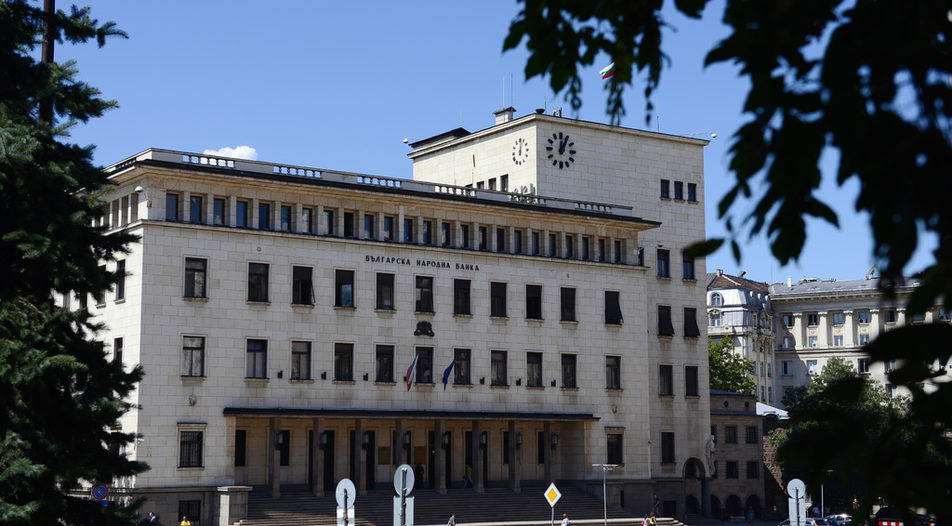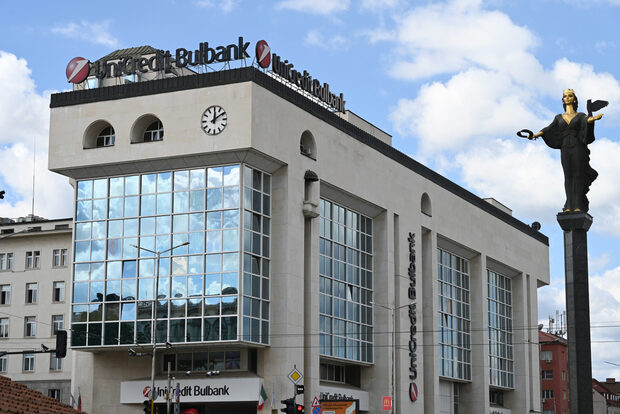It is not surprising that in 2020, most economic sectors in Bulgaria were less profitable than the year before.
With weak lending, coronavirus measures, and a credit moratorium, the financial sector was not spared. According to central bank data, the total profit of the 24 banks operating in the country shrank by half, to 815 million levs (417 million euro). This clearly shows the stress on the system caused by the coronavirus crisis. Moreover, 2021 may be even worse for banks as some of last year's problems were just postponed through anti-crisis and regulatory measures.
The aggregate profit of the banking sector in 2020 was the lowest since 2014. However, the banking system had assets worth 85 billion levs back then, whereas now they're up at 124 billion levs, i.e. profitability has gone down significantly.
Although close to a billion levs in profits may not seem like much of a reason to pity anyone, least of all banks, weakness in the financial sector bodes ill for everyone. It poses risks to savings and weak credit activity, which would result in a slower economic recovery.
The good news in banks' 2020 financial statements is that the numbers aren't that bad, so far. Rather, they show a preserved capacity to absorb losses as well as sufficient capital and liquidity - factors that help prevent a forced and prolonged stagnation in credit activity.
Losses
In the fourth quarter of 2020, the banking sector's profit totaled 113 million levs, with nine out of the 24 banks reporting losses. Looking at the data for December, the system registered a loss due to accrued impairment losses and provisions exceeding 200 million levs.
The largest contribution to the negative results comes from the state-owned Bulgarian Development Bank (BDB), which accumulated 100 million levs in provisions. The likely reason is the expectation for future losses from the anti-crisis measures of the government which capitalized the bank with 700 million levs for interest-free loans to households and corporate credit guarantees. Unsurprisingly, these measures envisage solid losses, which will gradually erode the bank's capital. The BDB finished the year with a loss of close to 105 million levs.
At the other end of the spectrum is the leader in terms of asset value in Bulgaria - UniCredit Bulbank, with a profit of 224 million levs. Although this profit is the largest in the sector for the year, it is 47% lower compared to the financial result achieved in 2019.
Less revenue, more expenses
A major factor for shrinking profits is the sector's impairment expenditure, which more than doubled in 2020, reaching 879 million levs. DSK Bank (the Bulgarian subsidiary of Hungarian group OTP) was the biggest contributor with close to 250 million levs in impairment expenses, likely due to its large volume of consumer loans which are traditionally less secure. Other banks specializing in the segment, such as TBI Bank and BNP Personal Finance, also accrued significant provisions - 41.5 and 44.4 million levs, respectively.
At this stage, due to the credit repayment moratorium, banks' balance sheets do not show a significant deterioration in the portfolios. Experts believe that more impairments will be imposed this year with the expiration of the moratorium.
Another factor for the decrease in profits is shrinking revenue. The net interest income registered in 2020 decreased by 3.5% on the year to 2.65 billion levs due to the continuing decline in loan interest rates. This trend is not new but in previous years it was offset by the high growth of new loans, whereas in 2020 growth slowed to 4.5% from 7.4% in 2019.
Net income from fees and commissions also shrank by 67.7 million levs (6.1%) to 1.04 billion levs. Here, too, weaker lending is the culprit, as new loans are accompanied by one-off fees. However, more significant is the fact that people used bank services less amid the economic uncertainty caused by the coronavirus pandemic.
And yet, growth
Despite all the challenges 2020 brought, Bulgaria's banking sector managed to grow, with the assets in the system increasing by 8.6% compared with the previous year.
By December, UniCredit Bulbank takes the lead by asset value with 24 billion levs. This year will likely see continued growth in the sector as lending accelerates, especially in the second half.
However, the strain on banks' financial results will also likely continue. While lenders like UniCredit Bulbank and DSK have had the benefit of adding 190 million levs in dividend income from subsidiaries this year, the boost will likely be much more modest next year.
For the second year in a row, Bulgarian banks will be unable to distribute dividends and will keep all the profit made in 2020 instead. The decision came from the central bank and was motivated by the "continuous uncertainty and the challenges relating to the economic effects from the spread of COVID-19 and the restrictive measures imposed". According to the central bank's estimates, the continuation of the macroprudential measure will increase the common equity tier 1 (CET 1) capital ratio of the banking system by 1.23 percentage points to 23.1%. All else equal, this would additionally strengthen the capacity of banks to absorb losses from possible deterioration in the quality of the loan portfolios.
"The positive effect from capitalizing the profit of banks preventively decreases their sensitivity to the realization of credit risk, maintains the stability of the banking system and facilitates banks to continue carrying out the function of financial intermediation through the provision of credit to the economy and households," said the central bank.
It is not surprising that in 2020, most economic sectors in Bulgaria were less profitable than the year before.
With weak lending, coronavirus measures, and a credit moratorium, the financial sector was not spared. According to central bank data, the total profit of the 24 banks operating in the country shrank by half, to 815 million levs (417 million euro). This clearly shows the stress on the system caused by the coronavirus crisis. Moreover, 2021 may be even worse for banks as some of last year's problems were just postponed through anti-crisis and regulatory measures.











